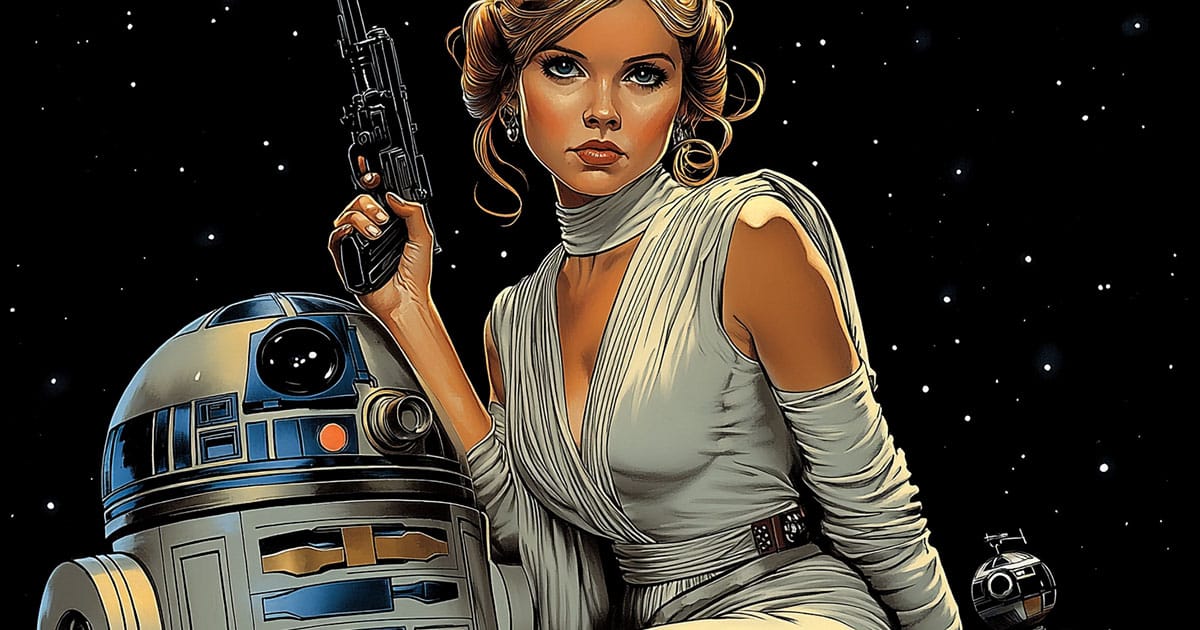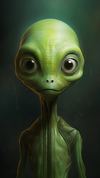Space Operas — Where Nobody Can Hear You Dramatically Overact
A lighter look at Space Operas.

"Space opera? Isn't that what happens when Pavarotti gets launched into orbit?" (Note: This has never actually happened)
But no, space opera is an amazingly popular genre of science fiction that's basically like taking Wagner's Ring Cycle, stuffing it full of laser guns, and launching it into a galaxy where apparently everyone speaks perfect English.
Science Fiction Classics recently published an article enumerating some of the best space operas. This article is a counter-balance meant to poke a little fun at the sub-genre.
The term "space opera" was coined in 1941 by Wilson Tucker, who was presumably tired of saying "you know, those stories where square-jawed heroes save improbably humanoid alien princesses while violating every known law of physics."
Tucker meant it as an insult, like calling something a "soap opera," but in space. Which, when you think about it, is pretty accurate —except instead of finding out your evil twin is actually your cousin's doctor's wife, you discover that your father is a cybernetic space emperor who really needs to work on his parenting skills.
The Early Days: Honeymoons in Space (No, Really)

One of the first space operas was literally called "A Honeymoon in Space" (1901), which sounds like something Jeff Bezos would plan for his next marriage.
The story featured a young couple gallivanting around the solar system, presumably arguing about whether to stop and ask for directions at Alpha Centauri.
Then came Edgar Rice Burroughs' "A Princess of Mars" (1917), which established the time-honored tradition of Earth guys somehow becoming irresistible to alien royalty. (Note to any alien princesses reading this. I'm available and have excellent references.)
The Problems with Space Opera
Critics love to point out that space operas often ignore little things like "physics" and "reality." You know, minor details like the fact that space is really, really big and empty, and that traveling between stars would take longer than waiting for George R.R. Martin to finish his next book.
Those same needy critics also complain about the use of familiar tropes, like:
- The Chosen One (who usually starts as a farmer, because apparently farming is excellent preparation for saving the galaxy)
- The Evil Empire (which always has terrible workplace safety standards and an inexplicable addiction to building easily-destroyable superweapons)
- The Ragtag Rebels (who somehow defeat said empire despite having a budget that wouldn't cover a single Death Star coffee maker)
The Greatest Hits
Let me tell you about some of the best space operas, or as I like to call them, "Stories Where People Fight Space Battles While Having Existential Crises":
"Dune" (1965) - Imagine "Lawrence of Arabia" meets "How to Train Your Dragon," but the dragon is a giant sandworm and everybody's really into spice. Not the pumpkin spice kind – the "makes your eyes glow blue and lets you fold space" kind. (Note: Do not attempt to fold space with regular pumpkin spice. Trust me on this one.)
"Hyperion" (1989) - Seven people go on a space Canterbury Tales to meet a creature called the Shrike, which is basically what you'd get if Edward Scissorhands and a Swiss Army knife had a baby that really, really liked murder.
"Ender's Game" (1985) - A heartwarming tale about child soldiers saving humanity through video games. You know, for kids.
The Culture novels by Iain M. Banks - Imagine if your smartphone became self-aware, decided to build itself a galaxy-sized playground, and then invited humans along for giggles. Also, all the spaceships have names like "I Said I've Got A Big Stick" and "Gravitas? What Gravitas?"

In Conclusion
Space opera continues to thrive because, let's face it, sometimes you just want to watch someone blow up a space station while spouting philosophical quotes about the nature of humanity.
It's like dinner theater for the cosmos, complete with rubber alien masks and improbable romance. And really, isn't that what science fiction is all about? (Source: My exhaustive research, which definitely didn't just involve watching Star Wars while eating microwave burritos. Also, several very serious books that I definitely read and didn't just skim while looking for the funny parts.)
Note: No actual operas were harmed in the writing of this article, though several physics equations are still in therapy.

